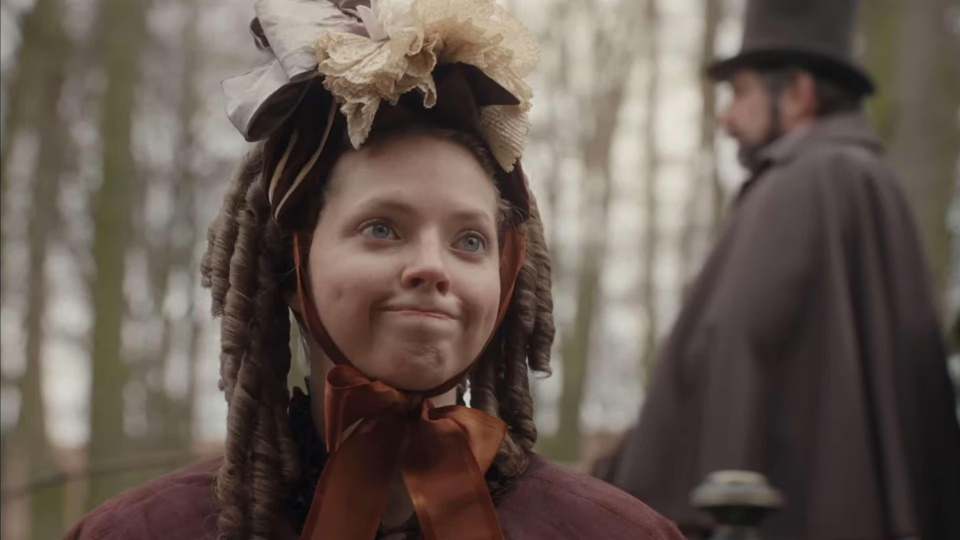The Ugly Stepsister

Here’s a fairy tale that draws blood.
Emilie Blichfeldt’s The Ugly Stepsister opens like Grimm and closes like Cronenberg. This is a movie that understands beauty’s true cost—and makes us pay it alongside its protagonist.
The setup is devilishly clever. Two families collide in mutual disappointment: widow Rebekka (with homely daughters Elvira and Alma) marries widower Otto (with beautiful daughter Agnes), each thinking the other wealthy. Otto dies on their wedding night. They’re penniless. Now what?
Rebekka hatches a plan. She’ll remake Elvira—through surgery, through pain, through sheer force of will—into something the Prince might want. Elvira, who’s idealized this Prince since childhood, agrees. She shouldn’t.
What follows earned every gag-reflex I experienced.
Lea Myren is revelatory as Elvira. Those large, expressive eyes convey a woman-child chasing childhood dreams into nightmare territory. She’s victim and monster, sympathetic even when resentment curdles into cruelty. This is no simple cautionary tale. Blichfeldt refuses easy answers about beauty standards, the patriarchy, or female complicity. The Prince is handsome. The pressure comes from women too. Reality resists slogans.
Watch Thea Sofie Loch Næss as Agnes. She starts haughty, thaws gradually, finds grace. Both women feel human—flawed, dreaming, trapped. Despite the fairy-tale trappings, these are people, not symbols.
The younger sister Alma becomes the film’s moral center simply by walking away. She chooses hard work over kept-woman status. The film doesn’t speechify about this. It just shows us what sanity looks like.
Indeed, the film treads similar ground to last year’s The Substance. But where The Substance stayed clinical and cold, The Ugly Stepsister is intimate and warm. Elvira’s fantasies are depicted in hyperreal sequences drenched in color. The intimacy makes Elvira’s suffering visceral. That notorious scene—you’ll know it when it comes—rivals the toilet in Trainspotting.
And yet, every cringe-inducing moment serves the story Blichfeldt is telling about the savage machinery of beauty culture. She earns her grotesquerie by forcing us through the gauntlet with Elvira, refusing to cut away from the pain.
Some viewers will be put off by Blichfeldt’s willingness to blend victim and monster. But that’s the point. These are Grimm’s woods, where everyone bleeds and no one escapes unmarked.
I found it enthralling. This is a horror film that understands that transformation demands sacrifice. The question becomes: what are you willing to lose to become beautiful? And once you’ve lost it, who looks back from the mirror?